17 Feb Common Causes of Kitchen Fires in Restaurants and How to Prevent Them
Common Causes of Kitchen Fires in Restaurants and How to Prevent Them
Published: 13 February 2025
Have a Kitchen Fire System Project you would like to discuss with us?
Commercial kitchens in restaurants are high-risk environments for fires due to their heavy use of cooking equipment, grease accumulation, and high temperatures. Understanding the most frequent causes of kitchen fires in restaurants can help businesses take preventive measures to reduce risks and ensure the safety of staff and customers.
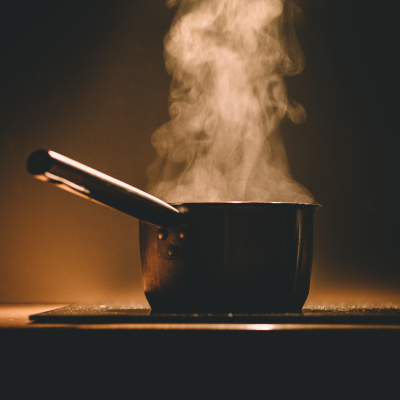
1. Unattended Cooking
One of the leading causes of kitchen fires is leaving food unattended while cooking. In a busy restaurant, distractions can easily lead to overheating and ignition of food or oil.
Prevention Tips:
- Always have a designated staff member monitoring food being cooked.
- Implement strict kitchen protocols to avoid unattended cooking.
- Use timers to remind staff of cooking progress.
2. Overheated Cooking Oil
Grease fires occur when cooking oil overheats and ignites, a frequent issue in restaurants using deep fryers and high-heat cooking.
Prevention Tips:
- Monitor oil temperature with thermometers to prevent overheating.
- Regularly change fryer oil to avoid buildup of combustible residues.
- Keep a metal lid or Class K fire extinguisher nearby to handle grease fires safely.
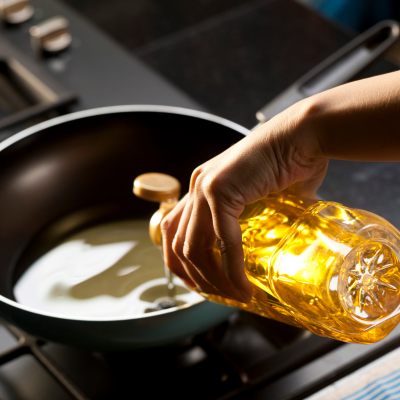
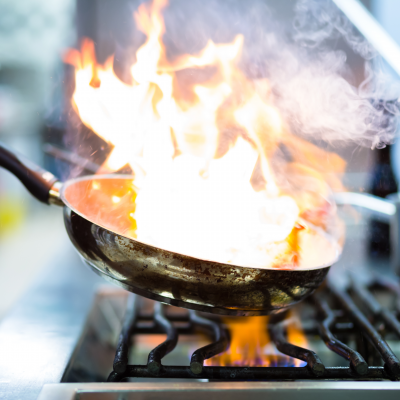
3. Flammable Materials Near Heat Sources
Placing flammable materials too close to cooking equipment can quickly lead to a fire in a restaurant kitchen.
Prevention Tips:
- Keep dish towels, paper products, and food packaging away from stoves and fryers.
- Store cooking sprays and oils in designated fire-resistant areas.
- Ensure staff wear properly fitted, non-flammable kitchen attire.
4. Faulty or Misused Cooking Appliances
Restaurant kitchens rely on a variety of cooking appliances, such as stoves, ovens, deep fryers, and grills, which can overheat or malfunction, causing electrical fires.
Prevention Tips:
- Regularly inspect and maintain appliances to ensure they function correctly.
- Train staff to use kitchen equipment properly and safely.
- Avoid overloading electrical outlets and use surge protectors where necessary.
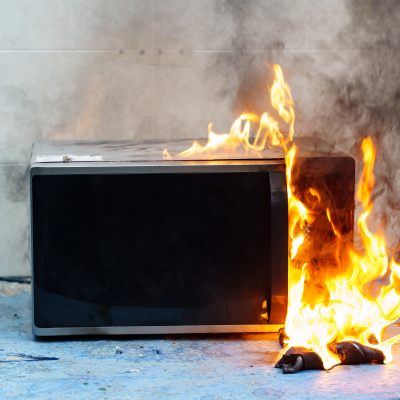
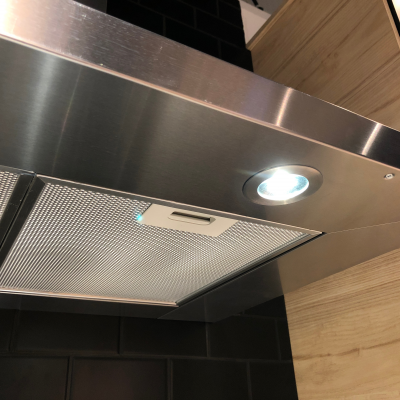
5. Grease Traps and Ventilation System Fires
Grease traps, exhaust hoods, and ventilation systems collect grease and residue over time, which can ignite if not cleaned properly.
Prevention Tips:
- Schedule regular cleaning of grease traps and ventilation systems.
- Install and maintain automatic fire suppression systems in exhaust hoods.
- Use grease containment systems to prevent overflow and buildup.
6. Electrical Appliance Failures
Faulty wiring, overloaded circuits, and damaged electrical equipment are common causes of fires in restaurant kitchens.
Prevention Tips:
- Conduct routine electrical inspections by a licensed professional.
- Replace worn-out electrical cords and avoid running multiple high-powered appliances on the same circuit.
- Train staff to recognise warning signs of electrical issues, such as flickering lights or burning smells.


7. Distractions and Human Error
With the fast-paced nature of restaurant kitchens, distractions and mistakes can lead to dangerous situations.
Prevention Tips:
- Implement strict kitchen protocols and training programs.
- Designate fire safety officers to oversee operations and respond to emergencies.
- Conduct regular fire safety drills to prepare staff for potential incidents.
8. Gas Leaks and Malfunctioning Gas Stoves
Gas leaks pose a severe fire and explosion hazard if not detected in time, especially in commercial kitchens with heavy reliance on gas-powered appliances.
Prevention Tips:
- Perform regular inspections of gas lines and connections.
- If a gas leak is suspected, shut off the supply immediately and ventilate the area.
- Install gas leak detectors and ensure staff know emergency shut-off procedures.
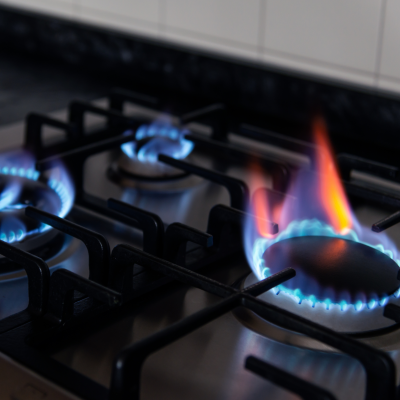
Restaurant kitchen fires are common but preventable with strict safety measures and proper maintenance. By focusing on cleaning grease traps, maintaining electrical appliances, monitoring cooking processes, and training staff in fire safety protocols, restaurant owners can significantly reduce fire risks. Fire prevention is a vital aspect of running a successful restaurant, ensuring the safety of employees, customers, and the business itself.
